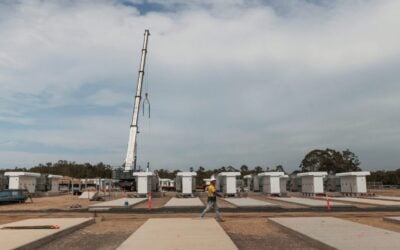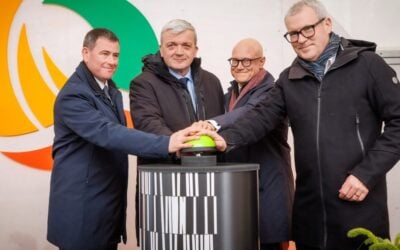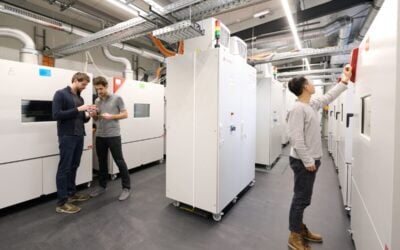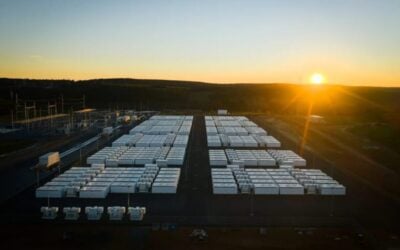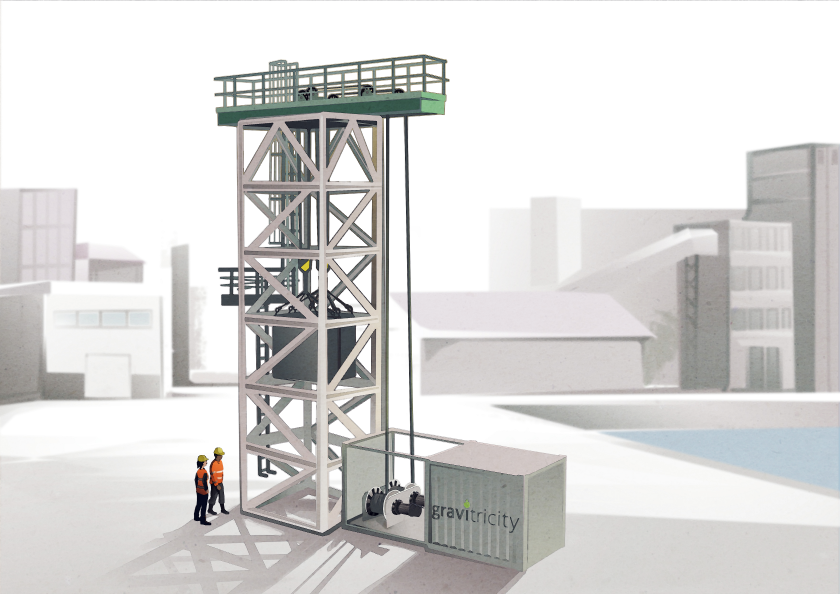
The EU’s European Investment Bank has pledged support for a long-duration thermal energy storage project and a gravity-based energy storage demonstration project.
They have been selected among 15 projects defined as large-scale — each requiring capital costs of more than €7.5 million (US$8.5 million) — through EU Innovation Fund grants for Project Development Assistance (PDA), administered by the bank.
A total of 311 applications were received for clean energy or decarbonisation projects after the call for submissions opened last summer.
Of these, seven were selected to receive direct funding from a €1.1 billion budget and include hydrogen, carbon capture and storage, advanced solar cell manufacturing and other technologies.
Try Premium for just $1
- Full premium access for the first month at only $1
- Converts to an annual rate after 30 days unless cancelled
- Cancel anytime during the trial period
Premium Benefits
- Expert industry analysis and interviews
- Digital access to PV Tech Power journal
- Exclusive event discounts
Or get the full Premium subscription right away
Or continue reading this article for free
The 15 among which the two energy storage projects were selected will receive PDA, technical assistance for various stages of their development.
The other 13 projects cover technologies including wind propulsion for cruise ships, hydrogen fuel cells for marine vessels, green methanol production, greenhouse gas (GHG) and carbon capture and storage, bioethanol, power-to-liquid for aviation fuels and other areas.
There is also an electric vehicle (EV) battery project, which will use ultra-pure electrolyte salt to improve lithium-ion batteries and a project to develop and upscale the synthesis of curved graphene and electrode production technologies.
Thermal energy storage project Sun2Store
Sun2Store, a 100MW/1,000MWh thermal energy storage project in Spain was selected for a PDA agreement. Using technology developed by US startup Malta Inc, the project will enable 10-hour duration storage of energy.
Malta Inc has developed a technology it calls ‘pumped heat’ electricity storage, which could provide up to 200 hours of storage, although the company is largely targeting 10 – 12 hour applications. It converts electricity to heat, which is then stored in molten salt. Simultaneously, the system produces cold energy stored in special vats of an anti-freeze-like cooling liquid.
The hot and cold energy are then converted back into electricity as required, using a temperature difference-driven heat engine. The company has raised funds from investors including Bill Gates’ Breakthrough Energy Ventures and is one of the founding members of the international Long Duration Energy Storage Council.
It has deals in place with equipment manufacturers Bechtel and Siemens Energy for co-development and supply of key components.
Funds have been granted to Malta Inc’s European affiliate company, Malta Iberia Pumped Heat Electricity Storage (Malta Iberia). The EIB will provide technical assistance to Malta Iberia, including an independent technology assessment, which will verify the storage facility’s key technical parameters.
Malta Inc recently announced plans for a similar-sized project in Canada.
Gravity storage project GraviSTORE
Scotland-headquartered startup Gravitricity was the other energy storage system industry recipient of a PDA agreement through the Innovation Fund.
The EIB will support Gravitricity’s plans to build a full scale 4-8MW project in a former mine shaft.
Located in mainland Europe, the project follows a 250kW demonstrator which operated in Scotland’s capital city Edinburgh throughout the summer and for which specialists appointed by the EIB have begun evaluating test results.
The results of the Edinburgh demonstrator are to be combined with a review of local revenue streams to produce a commercial risk assessment that will inform detailed design and development activities.
“We already have a high level of confidence in our technology and its ability to store energy effectively. What these studies will bring is increased understanding and confidence in how a full-scale project will play into a specific energy market,” said Chris Yendell, project development manager at Gravitricity.
Gravitricity’s energy storage solution works by raising weights in a deep shaft, with disused mine shafts currently being targeted by the firm, and releasing them when energy is required. Its proposed single weight full scale system could deliver up to 2MWh of energy storage, with future multi-weight systems having the potential for a capacity of 25MWh or more.
Alongside the test evaluations, the EIB has now also committed 120 days of consultancy time to advance the full scale project.
In October, Gravitricity engineers visited the recently mothballed Staříč mine in the Moravian Silesian Region of Czechia to investigate its potential for the project. The Gravitricity team is to head to mainland Europe later in January to further evaluate their shortlist, with a final selection decision expected within the next few months.
The firm is also exploring opportunities for a purpose-built prototype shaft at a brownfield location in the UK, where gravity storage could be combined with hydrogen and inter-seasonal heat storage.
Gravitricity story by Alice Grundy.
Gravitricity story first appeared on Solar Power Portal – read the full version here.

